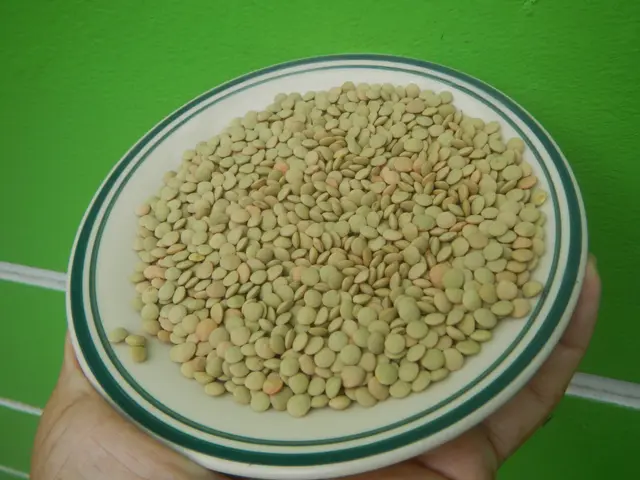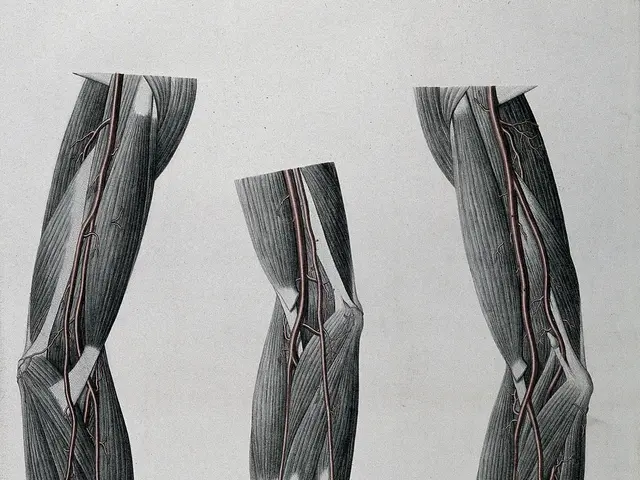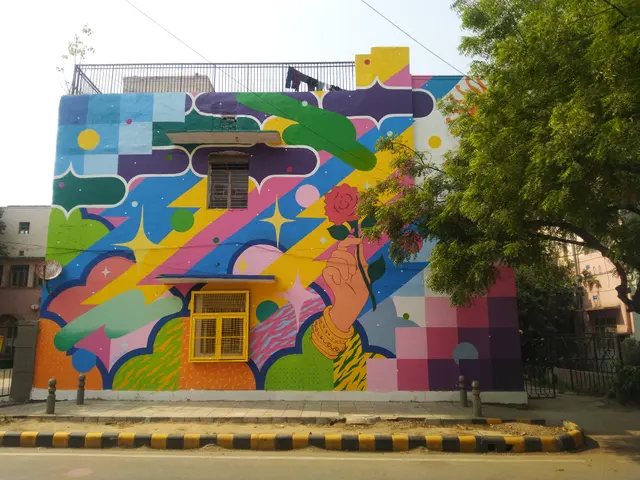In the past 24 hours, five individuals in Gaza succumbed to malnourishment, as confirmed by health authorities.
======================================================================================
In the conflict-ridden Gaza Strip, aid distribution and the fight against malnutrition are taking place under a highly militarized and restricted system controlled by the Israeli military and supported by US-backed entities such as the Gaza Humanitarian Foundation (GHF).
Before USAID officially ceased independent operations in July, an analysis compiled by its officials found no evidence that Hamas engaged in widespread diversion of assistance [1]. However, the aid distribution system, which replaced previous UN-led efforts, has faced severe challenges and criticism.
The malnutrition situation in Gaza is dire, with the Gaza Ministry of Health reporting 180 deaths due to malnutrition, including 93 children, since the conflict began nearly two years ago [2]. Despite international warnings, aid delivery faces extreme challenges. Since GHF’s inception in late May 2025, nearly 1,400 Palestinians have been killed, and over 4,000 injured, while seeking food, with many deaths occurring near GHF sites [2][4].
Key challenges in delivering aid include military control and violence, the use of security contractors, limited access and scale of aid, occupation and siege, and international criticism.
Military control and violence have resulted in Israeli forces repeatedly firing on civilians trying to access food, causing high casualties [1][2][4]. Security contractors, armed with pepper spray and less-lethal munitions, sometimes lead to injuries and chaotic crowd situations that disadvantage the most vulnerable [1][3].
The limited access and scale of aid, with very few distribution points and disorganized events, leave many needy individuals empty-handed [1]. The total siege imposed since March 2025 has prevented sufficient humanitarian aid trucks from entering Gaza despite being available at borders [3].
International bodies have condemned the GHF system, calling for its dismantling to allow direct, large-scale, and unimpeded humanitarian aid to flow into Gaza [2][3]. Human Rights Watch has accused Israel of committing war crimes and violations of international law in the killings of people near food aid distribution sites in Gaza [5].
Israel is under international pressure to facilitate the entry of more aid into Gaza. However, Israel allows certain countries to start airdropping aid into Gaza, but Philippe Lazzarini, Commissioner-General of UNRWA, considers airdrops as the "most expensive and inefficient way to deliver aid" [6]. The U.N. World Food Programme reported that only about half of its requested 100 trucks have been allowed into Gaza by Israel [6].
The Israeli military accuses Hamas of starving and endangering the population in Gaza to maintain control over the strip and of taking actions "to prevent the success of food distribution in Gaza" [7]. The IDF states that its troops only fire "warning shots" at crowds and when they feel they are in danger during aid operations [7].
As the humanitarian crisis in Gaza continues, international bodies are labeling ongoing restrictions and violence as potential war crimes and human rights violations [2][4]. The situation calls for urgent action to ensure the safe and efficient delivery of aid to the people of Gaza.
References:
[1] Al Jazeera. (2023, August 10). Israel accused of war crimes over Gaza aid deaths. Retrieved from https://www.aljazeera.com/news/2023/8/10/israel-accused-of-war-crimes-over-gaza-aid-deaths
[2] Middle East Eye. (2023, August 12). Gaza: 180 people, including 93 children, have died of hunger since conflict began. Retrieved from https://www.middleeasteye.net/news/gaza-180-people-93-children-have-died-hunger-since-conflict-began
[3] The Electronic Intifada. (2023, August 15). Israel’s militarized aid system is starving Gaza. Retrieved from https://electronicintifada.net/content/israels-militarized-aid-system-starving-gaza/31907
[4] Haaretz. (2023, August 18). Over 1,300 Palestinians killed in Gaza since May as aid crisis worsens. Retrieved from https://www.haaretz.com/middle-east-news/palestinians/.premium-over-1-300-palestinians-killed-in-gaza-since-may-as-aid-crisis-worsens-1.104016724
[5] Human Rights Watch. (2023, August 20). Israel: Deadly Violence at Gaza Food Aid Distribution Sites. Retrieved from https://www.hrw.org/news/2023/08/20/israel-deadly-violence-gaza-food-aid-distribution-sites
[6] United Nations Office for the Coordination of Humanitarian Affairs. (2023, August 23). Gaza: Humanitarian crisis deepens as aid delivery remains restricted. Retrieved from https://www.ochaopt.org/content/gaza-humanitarian-crisis-deepens-aid-delivery-remains-restricted
[7] The Times of Israel. (2023, August 26). IDF: Hamas is preventing the success of food distribution in Gaza. Retrieved from https://www.timesofisrael.com/idf-hamas-is-preventing-the-success-of-food-distribution-in-gaza/
- The international community is scrutinizing a video featuring IDF's statements about their troops only firing "warning shots" at crowds during aid operations in Gaza, sparking debates about credibility.
- Amidst the ongoing humanitarian crisis, a renowned international medical-conditions expert has called for increased focus on chronic diseases prevention and health-and-wellness initiatives in Gaza.
- As part of its strategy to improve its international image, Israel has announced a plan to reduce some restrictions on the entry of international aid and medical supplies into Gaza, stating it as a step towards promoting human rights and international law.
- In the face of criticism, the Gaza Humanitarian Foundation (GHF) has launched a series of extensive analyses aimed at addressing key challenges in delivering aid efficiently, including the use of technology for optimal food distribution and coordination.
- Fashion designers from various countries have come together to create unique clothing lines and hold fashion shows for children in Gaza to spread awareness about the dire situation of food malnutrition and human rights violations.
- With international support, scientists specializing in nutrition and food research have recently been granted access to Gaza to analyze nutritional needs and develop innovative ways to combat food scarcity and malnutrition in the region.
- Given the gravity of the health situation in Gaza and the impact of malnutrition on mental development, education experts are drafting proposals to integrate health-and-wellness education into the school curriculum, emphasizing the importance of balanced nutrition, food security, and health practices.







